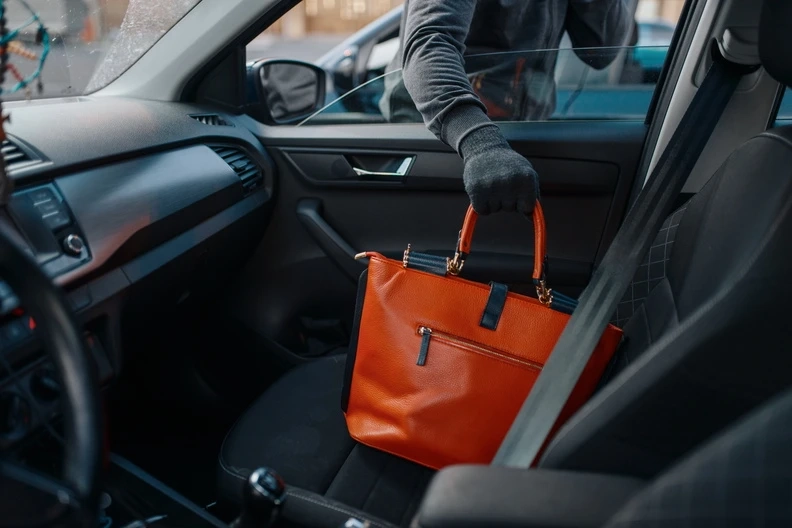Theft crimes are an umbrella that covers other thievery offenses. Theft offenses are often related to crimes that involve the unauthorized action of taking property owned by another individual and permanently depriving them of it. These cases can lead to jail time which is why the defendant must work with an experienced and reputable theft lawyer to help them deal with the justice system.
Theft crimes previously involved three categories namely pretenses, embezzlement, and larceny. Nowadays, there are two main charges or categories petty theft and grand theft. Each of the categories covers different types of thievery offenses and property crimes.
All theft crimes have their basic elements with their slight variations. Each theft crime has a different punishment if the defendant is found guilty. In some cases, grand theft can lead to up to one year in prison and a felony charge which will be a difficult record to remove. A specific theft lawyer can work on lessening and creating a defense strategy to help the client’s plight in court.
Petty and Grand Theft
Lawyers with a specialty in theft crimes could greatly help defendants in these cases as they are specialists in the field. They know the ins and outs of the cases which makes their experience valuable. Defendants would only want to be charged with petty theft as grand theft is deemed as a more serious crime that can lead to heftier and harsher punishments. In some jurisdictions, the theft crime can be charged as first-degree theft instead of grand theft. A theft offense can be considered grand theft if:
- The stolen property is worth more than a minimum of $500 to $1000 upwards.
- The property was directly taken from the owner by using fear or force. In a case where fear and force were used, the crime is determined as robbery.
- The offense can be considered grand theft depending on the type and value of the property taken. However, car theft or some animal types can be regarded as grand theft regardless of their cost and market value.
Lost Property Vs. Stolen Property
Theft Offense Involving Stolen Property
Keeping or buying any stolen property falls under a crime that is related to receiving stolen goods. In convicting a defendant who received stolen goods, the authorities need to prove that the property under the defendant’s possession is stolen. The authorities must also prove that the defendant acquired the property knowing that the item was stolen. In these cases, the authorities would check on circumstantial evidence to look for facts proving that the defendant is aware that the item he or she received was stolen. The authorities’ case often relies on certain evidence that has alerted any person that the items involved were a hot commodity.
Embezzlement
Embezzlement is another theft crime that involves withholding property or assets to whom those things were entrusted. The victim in this case trusted his or her property to the perpetrator. Embezzlement is financial fraud. An example is if a lawyer was tasked by clients to handle their trust funds. However, the fund manager took the money entrusted and transferred the money for his gain. The crime committed in this scenario is embezzlement. Another scenario would be either a wife or husband embezzling money from a joint bank account, shared with the spouse.
Theft Offense Involving Lost Property
If a person keeps a lost property even with the ability to return the property to the owner, it can qualify as a theft offense. An example is if person A sees a $100 bill sitting on a bench with no one else around, person A will not be guilty of any theft offense if he chooses to keep it. The situation would be different if while person A is walking, he sees the man in front of him drop the $100 without noticing it, and person A decides to keep the $100. It can qualify as theft. Person A knew who the money belonged to, with the capacity of returning it but did not return it. Based on a legal standpoint, person A is committing a “constructive taking” act as he could have easily returned the money to the owner.
Theft
Theft is the type of crime that involves an act of taking something or anyone’s property through the use or threat of force. In common law definition, theft is referred to as taking someone’s property, with the intent of permanently depriving the owner of his property through force or fear. Theft is differentiated from other types of theft crimes due to its violent nature. Other theft crimes are tried as misdemeanors but theft is considered a felony. Armed theft uses weapons during the act of the crime. Highway theft is also referred to as mugging. This type of theft occurs in streets, parking lots, or sidewalks.
Other kinds of theft offenses involved different types of thievery crimes. Every crime has its brevity and nature which has its particular set of punishments. To understand and learn more about the law in every jurisdiction, defendants or people who need legal advice should seek a specialized theft lawyer with knowledge and experience in the criminal defense system.
If you are looking for a reputable defense lawyer. Stockmann Law has years of hands-on experience in dealing with criminal defense cases. You can visit them at 6035 Binney Street Suite #200, Omaha, NE 68104. You can contact them via telephone at (402) 884-1031, or visit their website at http://nebraskainterstatedrugdefense.com


